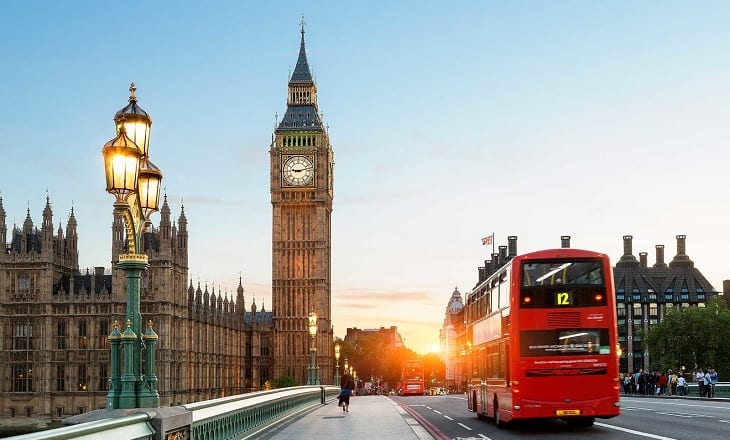The following article was written by freelance writer Damien Troy.
Political resignations aren’t unheard of, but since Brexit was officially put underway on the 23rd June 2016, the string of ministers jumping the proverbial ship has risen considerably. With David Cameron arguably starting the conga-line of resignations back on the 13th July 2016, the past two years have seen ministers come and go much more rapidly than many of us may have seen or been aware of in our lifetimes.
With this in mind, talk of how stable our economy could be as a result of this unstable government is rife within financial markets, particularly amongst traders and more and more investors are taking the importance of licensing and regulation much more seriously – However, when the GBP seems to be so weak at this time of political turmoil, is licensing and regulation in exchange trading enough? Below, we’re exploring whether recent resignations in UK politics could have a devastating effect on GDP and GBP rates.
Who Have We Seen Resign?
The Conservative Party has seen its fair share of resignations as of late, with the most notable of recent weeks being that of then-Foreign Secretary Boris Johnson. However, he isn’t the only Tory MP to hand in his notice over May’s newly announced Brexit plan. In fact, the likes of Robert Courts, Chris Green, Conor Burns, Scott Mann, Guto Bebb, Steve Baker, Maria Caulfield, Ben Bradley and, of course, David Davis, have also left as a result of this plan. The Tories have also seen the loss of Amber Rudd, Priti Patel, Damien Green, Justine Greening and Phillip Lee since the snap election of 2017 and thus, there has been plenty of room for political uncertainty and a struggling economy as a result. However, there are a few resignations, in particular, that we’re taking a closer look at:
Amber Rudd
Amber Rudd’s resignation had come as a shock to most, though for some, the shock was a good one. Whether fond of Rudd’s behaviour or disgusted by it, her resignation as Home Secretary came as a result of not only misleading MPs in the House Of Commons by claiming there were no immigration targets when the opposite was true, but also in regards to the Windrush scandal that dominated early 2018. After her resignation in April, the GBP hit a three month low and while there have been debates regarding the true reason for this fall, the political unrest and distrust in the current government appear to be the most widely considered to be at fault.
David Davis
Brexit Secretary David Davis shocked the Tory party when he announced his resignation on 9th July 2018. With claims that he no longer truly believed in the Brexit plan and that he wasn’t the best person to continue with May’s plan, he handed in his notice and seemingly left the Prime Minister stranded. However, what is perhaps most interesting about this particular resignation is that the rate for GBP against the Euro specifically actually rose around 0.3% following the news.
Boris Johnson
Boris Johnson is the most recent big name to hand in his resignation over the Brexit negotiations and, true to expectations, the exchange rates for GBP did drop following the news. Despite the smaller amount of just 0.31% (against the Euro), the fact that there was a fall at all is a testament to how easily effected the British pound currently is. Its vulnerability, in particular, is something worth keeping an eye on, and with bold, vocal figures like Boris Johnson resigning and announcing their lack of belief in the current Brexit plan, the lack of confidence in Britain is understandable across the globe.
What Does Political Uncertainty Mean For The UK’s Economy?
What all of the aforementioned resignations come down to is a matter of political uncertainty and it’s this uncertainty that has the most effect on the strength of Britain’s GDP. The uncertainty alone can cause the UK government to appear unstable and it’s stability that can make all the difference in the strength of an economy. Without stability, there’s limited confidence both within the country and within other countries across the globe that may be looking for strong trade deals.
The conservatives have been struggling for quite some time now – take the snap election, for example. The forecasts for this election suggested that, despite the initial intention being to improve and increase the conservative dominance, they were actually predicted to lose 20 seats. This lack of confidence from the UK people in their own government is likely to put up red flags for other governments and traders alike, especially where the economy is concerned.
Is There Truly Anything To Worry About?
While political resignations can have an effect on GBP rates and GDP overall, is there truly anything to worry about? With GBP growth seemingly still on the rise, we only have to glance back a year or so to see just how well the markets can hold out under adversity. GBP miraculously held its value after the London Terror Attacks of 2017, and even after the small 1% lead for the Tories after the snap election, and even during the aforementioned resignation of David Davis.
However, GBP is also prone to fluctuations, and it’s this in particular that could be the downfall of an otherwise relatively strong economy. The British Pound is by no means as strong as it once was and while it may be growing, the uncertainty surrounding the government, Brexit plans and just how the markets are behaving could be the ultimate downfall of the currency. Regulation may protect investors to a certain extent, but could it protect the country from a crash? What do you think?
